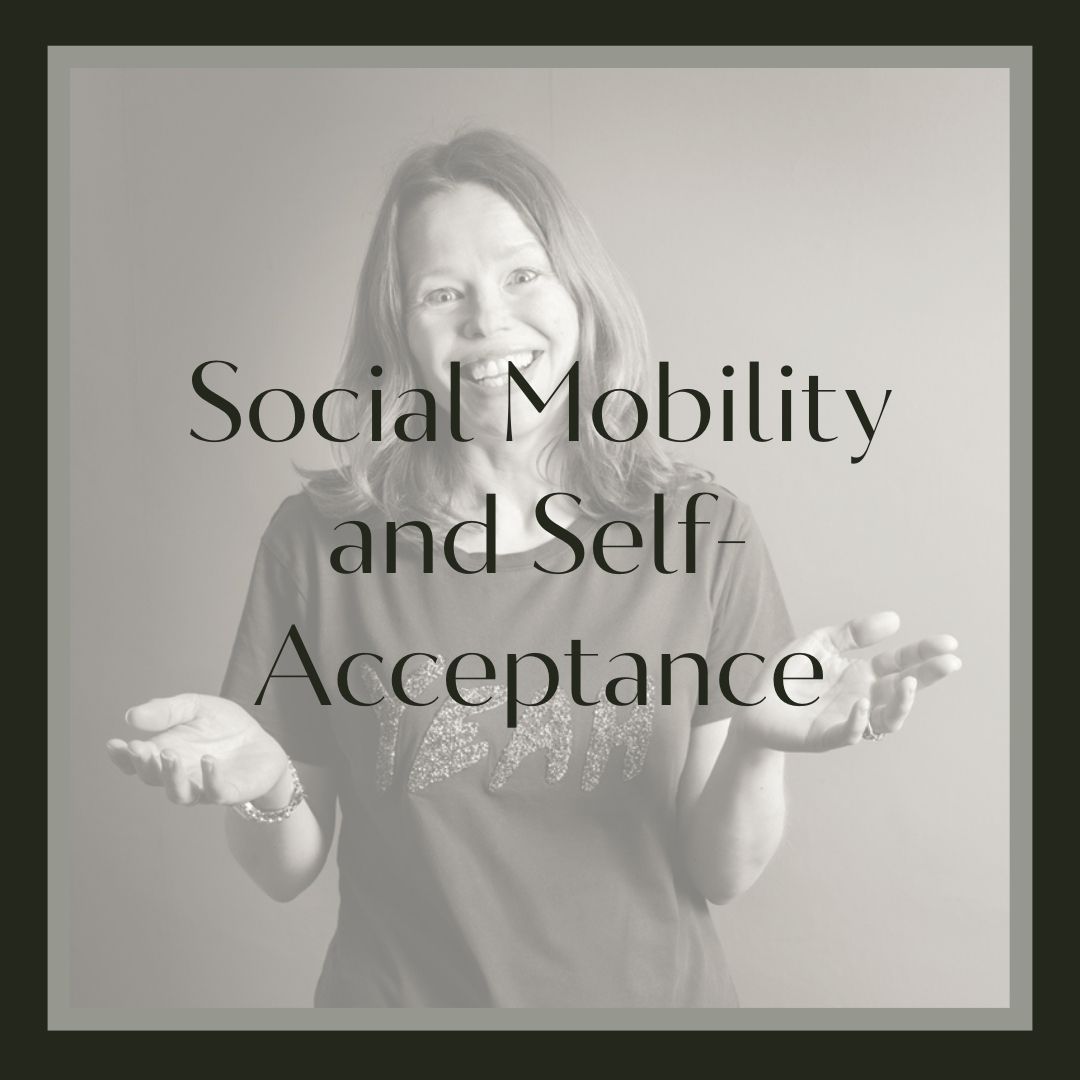How do you feel about money? Confused? Scared? You’re not alone. The SmartPurse video where women share how they feel about money is a powerful illustration of how a lack of direct and practical conversations about finance leads many of us (women especially) to lack confidence around money. Happily, it also talks about how we can reverse that trend.
Financial literacy and social mobility
Money and financial literacy is a big factor to be considered in the context of social mobility. As our relationship with money is directly linked to our earliest experiences, what happens when you grow up living hand-to-mouth and find yourself having to learn a whole new language?
Like many people who have had a similar experience to me, the world of mortgages, pensions, shares and investments was something I had to navigate without a money map.
First experiences inform financial literacy
My earliest relationship with money is directly linked to scarcity. I grew up watching my mum ‘count the pennies’ when my dad was made redundant (and also once witnessed her lob her change purse across the living room when I asked for money that she didn’t have…). I felt the shame and embarrassment of paying for shopping with a shed load of coppers. Of going to the cashier at the bank to take out £1.38 because that’s all that’s there and you need to get the bus home. Of the phone being cut off when you didn’t pay the red bill.
But when we had money – oh the JOY! The buying of frivolous things when you’re flush (my mum paid the phone bill, had points installed all over the house and bought three novelty handsets in one memorable spree – mine was shaped like a gherkin…). The school trips that were possible, the snow-washed denim jackets and tracksuits from the market for my brothers. It felt amazing. But it was always short-lived.
This is the reality for lots of people growing up in a poor family. Where the daily grind of life is so stressful and hard that of course you’re going to go for some light relief in the week that you earn an extra £50. Or take the chance to just participate in life in a way that others take for granted (and will judge you for doing so if they suspect your income is benefits-related).
What this meant is that my financial literacy was focused on what goes on at the sharp-end. I had no idea of how money as a concept worked and how it flowed except for one thing my mother once said to me: “Money always goes to money”. I used to hate her saying it, but now, in some ways I can see she wasn’t entirely wrong.
What scarcity taught me and the role models I had
Whilst going without is horrible, it did make me resilient, resourceful and realistic. I knew how to shop cheaply and how to make things last. I learnt life isn’t all about instant gratification and that you can walk if you can’t afford the bus. I learnt to check your change and the joy of generosity.
I also learnt by listening to the parents of my friends and my wider family. I heard things like:
- You should get a pension as soon as possible
- You should save a third of your salary
- You shouldn’t ever get a store card (a lesson I learned the hard way….)
- You shouldn’t borrow money if you can’t afford to pay it back
One friend’s dad had shares in British Telecom thanks to his job there and her mum found well-paid nannying work through advertisements in The Lady (one smart woman!). One friend’s dad got a ‘free car’ through his work. Another bought Premium Bonds that would sporadically pay out. I looked at these adults and thought “I’d like a bit of that one day”.
The road to becoming financially literate
Fast forward a few years and I’m 19 with a pension! Signing up for my first company scheme was such a milestone. I didn’t have any concept of what it might be to hit retirement or what that pot might be worth (something I’m a bit more in tune with now I’m about to hit 50) but I did get that putting money away with the idea it will grow was a Good Thing.
A few years on and I’m working for a firm where the pension is 10% non-contributary. I thought “well, I just won’t contribute then” but an older colleague put me right. We get access to a pensions advisor who asks me how I feel about risk and for someone who slept overnight at Bournemouth beach after heading down there to watch the Bournemouth vs Leeds ‘riot’ it turns out I’m pretty conservative when it comes to investments and tick the ‘low risk’ box.
I hear from one colleague about a firm that’s worth buying shares in. Turns out later on that he could have been done for insider trading but this is 28 years ago so I don’t think I will dob him in. I put in £100 and came out with £250 – no doubt he made a LOT more…
Some people I work with financially gear themselves to the point that they can’t choose to leave without a significant drop in living standards. I realise that I value freedom over status and keep things simple (one house, state schools, no prestige cars).
That said – my experience of social mobility means that ‘keeping it simple’ is still a world away from growing up on benefits in social housing with no financial safety net. In the course of my lifetime I’ve had to learn financial terms that were once alien and make provisions and decisions that I had no exposure to – and could not ask my family about.
On leaving my corporate career I set up my own business which meant a whole new level of financial responsibility and reporting – the thought of HMRC going after me gives me nightmares. To help with this step, I joined a women in business group, realised what I’m actually good at is writing and performing and got myself an accountant.
So how do you learn this stuff?
Key tips for financial literacy
For me it’s all about curiosity. Whether it was figuring out how I was going to afford my first BMW (something I had long aspired to) or where I wanted to invest my pension funds, it all boiled down to asking questions.
- I asked wealthy people how they made their money
- I asked professionals for help on pensions and investments
- I asked peers how they went about setting up their business
- I asked friends about their salaries and mortgages
- I asked the MoneySavingExpert website all sorts!
In short, I talked about money. And it’s something that we shouldn’t be afraid to do – whether that’s with our friends, our families or our children. Especially our children! Speaking with others gave me insights that I wouldn’t otherwise have; saved me money, helped make sure I wasn’t underpaid and broadened my language.
But there is a caveat that specifically relates to those who have experienced social mobility and that is when you’ve come ‘from nothing’ you can feel like you should just be grateful. I believe this is part of the reason the class pay gap exists whereby people from lower socio-economic backgrounds are paid on average 7% less for the same job than someone from a wealthier background (this becomes even higher if you’re also a woman or from an ethnic minority). Feeling guilty does us a disservice and places us at a disadvantage – naturally you wouldn’t speak with someone who would love the problem of deciding how best to invest that last bonus payment, but you do need to find people you can have that conversation with.
Financial literacy and children
When it comes to passing financial literacy on, there are lessons I learned from my parents but, like many of that generation, they wouldn’t have dreamed of telling me how much the rent was or how much they earned. Whilst they may have felt they were protecting me (or, more likely, that it was none of my bloody business) it did nothing for opening my eyes to what it is to have financial responsibilities.
With my children we talk about the mortgage and the bills and, when asked, I told them how much I get paid (they still think I was mad to have left Microsoft!). We’ve talked about taxes and wills and how a credit score works. They know what information is private within our family but they also have a realistic view of the world and are unafraid to ask questions that hopefully will serve them well.
As parents, we teach our children to tie their laces and cross the road. If we’re really brave we even help teach them to drive (check out this video to see my tips on that!) – I’d say it’s just as important (and less stressful!) to teach them about money.
Hear me talk about money
I was delighted to be a guest on the TechPixies podcast where we talked about breaking through barriers and feeling positive about money. Check it out here:
Check out SmartPurse
This is not an ad, I’ve not been paid and I have no affiliation with SmartPurse – I just think the video is brilliant!
Book me to speak
Looking for a speaker who’s not afraid to talk money? Drop me a line via my contact form
Watch my showreel
Want to take a look? Here you go!
Got your own top tips about money?
I’d love for people to share any great organisations that are designed to help – please put them in the comments!
Image credit: Photo by Nick Fewings on Unsplash




